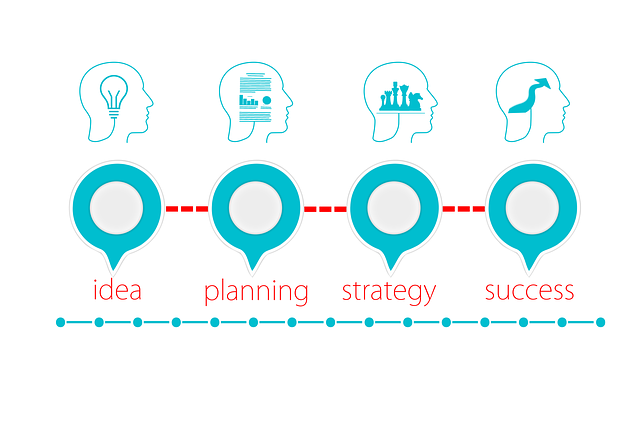Community events are crucial for fostering unity and shared purpose among locals, and successful event planning hinges on a deep understanding of the community, best achieved by utilizing local talent and resources. Engaging with local planners who know the area's unique character and preferences ensures that events resonate with attendees, with venues, caterers, and entertainment reflecting the community's essence. Employing local vendors for services like audio-visual equipment rental, decorations, and logistics not only simplifies operations but also bolsters the local economy. The synergy between local professionals, who often have established relationships, guarantees efficient communication, coordination, and a memorable experience for all, while promoting local businesses through strategic event planning.
Digital tools have transformed event planning for local businesses by offering comprehensive solutions that enhance every stage of organizing community events, from ideation to execution. These digital assets provide bespoke event websites, precise targeting and engagement tracking via social media management software, collaborative project management applications, and insights into attendee behavior. Event management software further assists with logistical tasks, budgeting, and financial transactions, while CRM systems help maintain strong ties with the community, sponsors, and partners. These digital solutions have made it possible for local businesses to elevate their community events, fostering stronger bonds within the community and setting new benchmarks for event planning success.
Integrating local businesses into community events is a strategic move that enhances event planning by leveraging their resources and networks. Early collaboration with these businesses, by clearly communicating goals and synergies, can lead to successful partnerships that offer increased exposure and opportunities for positive engagement for both the businesses and the community. These collaborations not only provide additional funding and support but also ensure alignment with local business brand values and customer outreach. Acknowledging their contributions further encourages their participation, contributing to more robust events and an enriched community environment where local businesses play a pivotal role in the community landscape.
To ensure the success of community events for local businesses, it's essential to define and monitor key performance indicators (KPIs) that reflect attendance numbers, participant engagement, financial ROI, and overall impact on the business-community relationship. Real-time data collection and analysis through event management software enable informed decision-making and allow for adjustments throughout the planning process, ensuring that events attract attendees and contribute to sustainable growth and robust ties between local businesses and their communities. Event Planning for Local Businesses is thus a data-driven process that delivers both immediate impact and long-term benefits.
Community events are the lifeblood of local engagement and business growth, offering a platform for connection and celebration. This article delves into the dynamic ways local talent and resources can be harnessed to execute seamless events, while also exploring the digital tools that streamline event planning for local businesses. We’ll examine strategies that foster collaboration with local enterprises and discuss how to measure their success through key performance indicators. Join us as we navigate the synergy between community spirit and event management efficiency.
- Leveraging Local Talent and Resources for Seamless Event Execution
- Digital Tools for Efficient and Effective Community Event Planning
- Strategies for Engaging Local Businesses in Community Events
- Measuring Success: Key Performance Indicators for Local Business Events
Leveraging Local Talent and Resources for Seamless Event Execution

Community events serve as vibrant gatherings that bring people together, fostering a sense of unity and shared purpose. To ensure these events are executed with finesse, leveraging local talent and resources is not just advantageous but indispensable. Local event planners possess intimate knowledge of the community’s unique character and preferences, enabling them to tailor events that resonate with attendees. This insider perspective proves invaluable when scouting venues, selecting caterers, or curating entertainment that aligns with the local flavor. Moreover, utilizing local vendors for services such as audio-visual equipment rental, decorations, and logistics streamlines operations and supports the local economy. These professionals are often well-acquainted with one another, facilitating efficient communication and coordination. By capitalizing on these local resources, community events can unfold seamlessly, creating an immersive and memorable experience for all participants while also championing local businesses through event planning endeavors. Engaging with local talent not only enriches the event but also nurtures a network of skilled individuals who are invested in the success of these communal celebrations. This symbiotic relationship ensures that community events remain a highlight on the local cultural calendar, year after year.
Digital Tools for Efficient and Effective Community Event Planning

In the contemporary landscape of community engagement, digital tools have become indispensable assets for local businesses looking to organize events. These tools streamline the event planning process by offering a suite of functionalities from initial conceptualization to post-event analysis. For instance, digital platforms can facilitate the creation of customized event websites that serve as hubs for information dissemination, ticket sales, and real-time updates. Social media management software enhances marketing efforts, allowing businesses to target specific demographics within the community and measure engagement metrics. Additionally, project management applications enable teams to collaborate seamlessly across different roles and responsibilities, ensuring that every aspect of the event is executed with precision. These digital solutions not only save time but also provide valuable insights into attendee behavior and preferences, which can be leveraged for future events and ongoing community relationships.
Furthermore, local businesses can utilize event management software to handle logistics such as venue booking, vendor coordination, and scheduling. With these tools, businesses can avoid common planning pitfalls by setting reminders, budgeting effectively, and generating comprehensive checklists tailored to the unique needs of each event. The integration of online payment systems simplifies financial transactions for both organizers and attendees, while customer relationship management (CRM) systems help maintain long-term relationships with community members, sponsors, and partners. By harnessing the power of these digital tools, local businesses can elevate their community events from concept to reality with greater ease and effectiveness, fostering stronger connections within the community and setting a new standard for event planning excellence.
Strategies for Engaging Local Businesses in Community Events

Integrating local businesses into community events can significantly enhance the event planning process, creating mutually beneficial opportunities and fostering a stronger sense of community. Local businesses often have valuable resources such as venues, marketing channels, and volunteer networks that can be leveraged to support event success. A strategic approach involves reaching out to businesses early in the event planning for local businesses phase, offering clear communication about event goals, target audiences, and potential collaboration models. By establishing a partnership, businesses can gain exposure and positive community engagement, while events can benefit from additional funding, logistical support, and promotion. It’s advantageous to tailor outreach efforts to align with the business’s brand values and customer base, ensuring that the event planning for local businesses is a natural extension of their marketing strategy. Additionally, offering recognition for their contributions, such as signage at the event or mentions in promotional materials, can incentivize their participation. By fostering these partnerships, events become more robust, and local businesses gain an active role in shaping a vibrant community landscape.
Measuring Success: Key Performance Indicators for Local Business Events

Organizing successful community events for local businesses hinges on meticulous planning and a clear understanding of success metrics. To gauge the effectiveness of these events, event planners must focus on key performance indicators (KPIs) that align with the objectives set forth by the hosting businesses. These KPIs can encompass a range of quantitative measures such as attendance rates, customer engagement levels, and return on investment (ROI). Attendance is a primary indicator; high turnout suggests strong community interest and support for local ventures. Engagement metrics, including social media mentions, event photos shared online, and post-event surveys, provide insights into how participants interacted with the event and the businesses involved. Additionally, tracking sales data before, during, and after the event helps in assessing the direct impact on the bottom line. By analyzing these KPIs, local businesses can refine their event planning for local businesses, ensuring that future events are not only well-attended but also contribute to sustainable business growth and enhanced community relationships. Utilizing event management software can streamline this data collection and analysis process, allowing for real-time adjustments and improved decision-making during event planning and execution.
Community events serve as a cornerstone for fostering unity and celebrating local culture. By effectively leveraging local talent, resources, and digital tools, event planning for local businesses becomes more seamless and impactful. The strategies outlined in this article have shown the importance of engaging with local businesses to create successful and memorable events. Key performance indicators provide valuable insights into the effectiveness of these efforts, ensuring continuous improvement in community engagement and economic vitality. As a result, local businesses can enhance their visibility and contribution to the community while building strong relationships that benefit all stakeholders involved.
